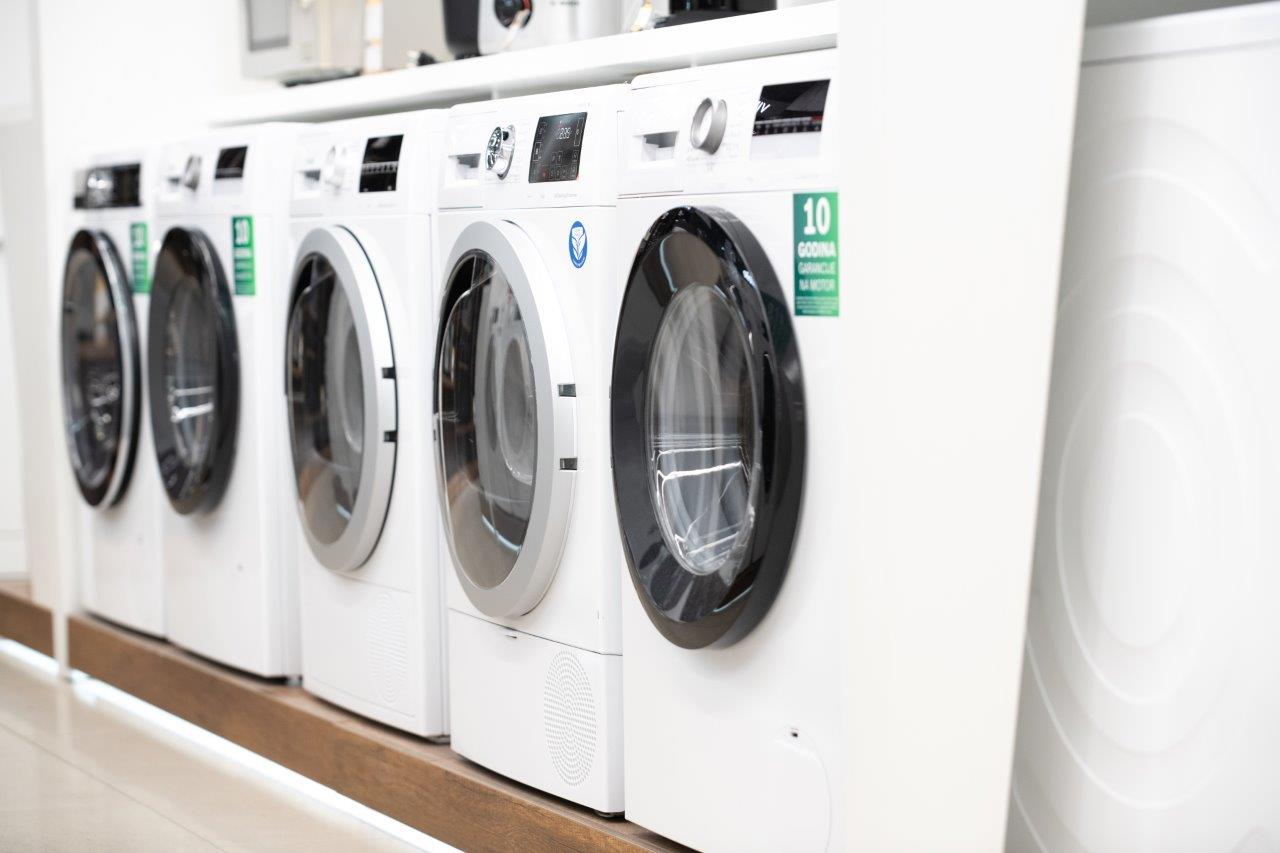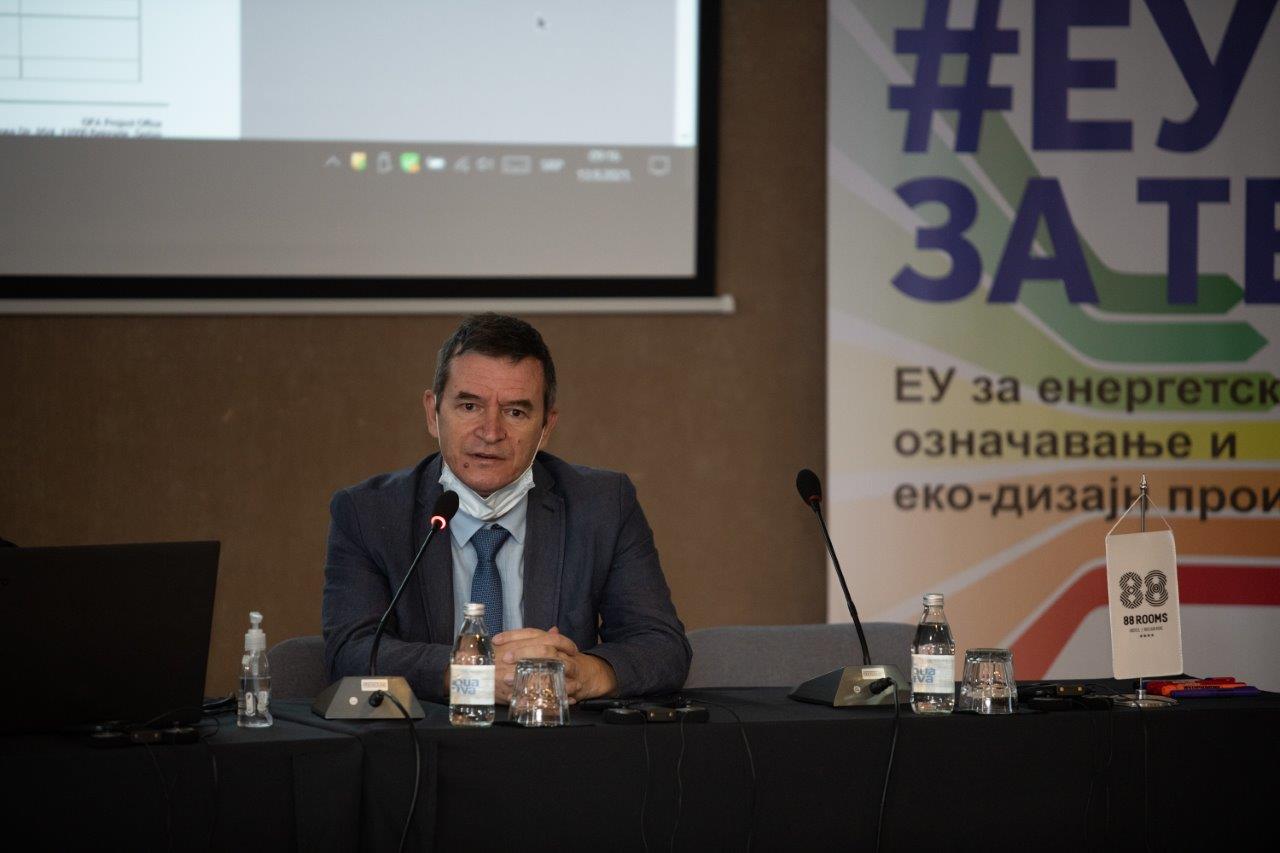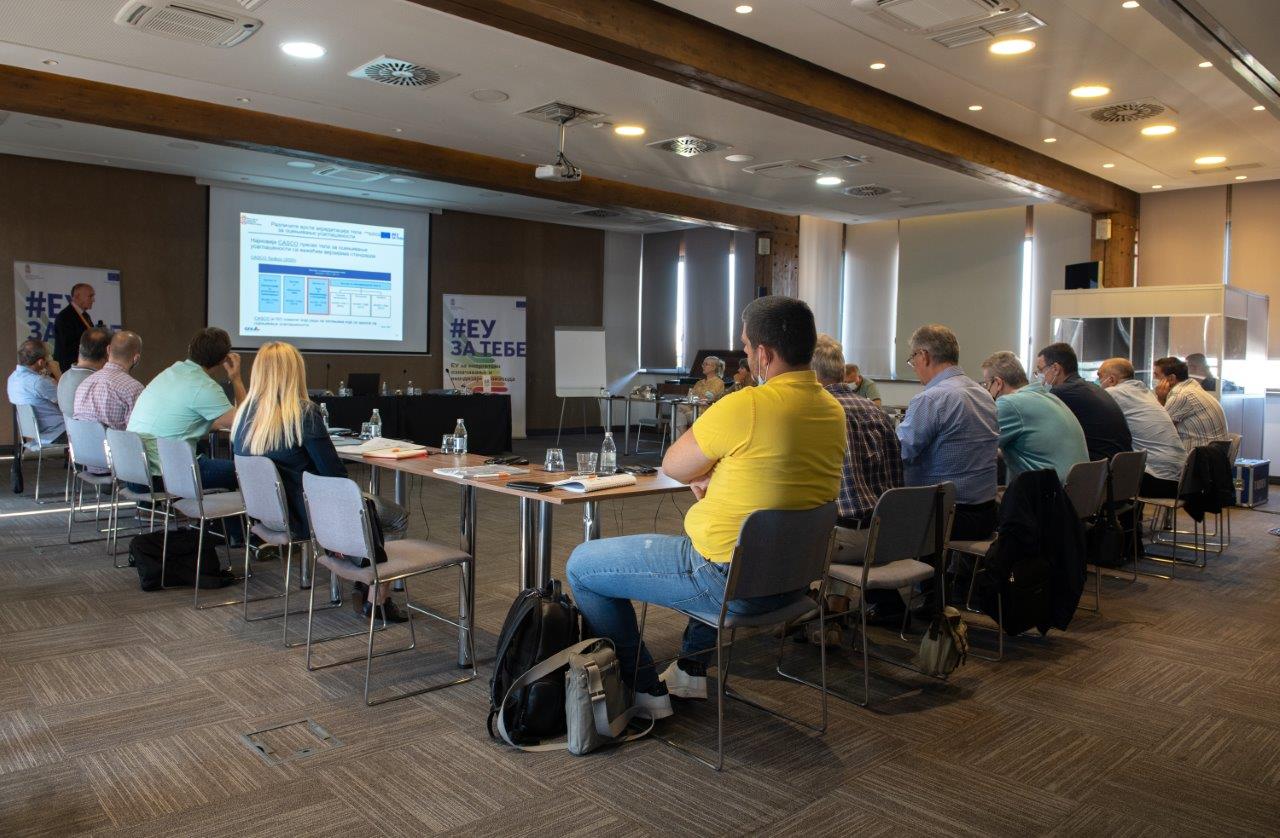Eco-design regulations as product quality guarantee soon in force in Serbia
For the first time since this year, the new Law on Energy Efficiency and Rational Use of Energy obliges manufacturers of electrical appliances in Serbia to respect the minimum requirements related to the eco-design of their products.
Regulations that precisely define the requirements of eco-design for TVs, washing machines, dishwashers, refrigerators and freezers, air conditioners, as well as set top box devices are in the process of adoption, which means that soon only products that meet these requirements will be placed at the market.
"With eco-design regulation in place, citizens will no longer suffer to buy, for instance, a washing machine that, although energy efficient, does not wash clothes well," explains Necmettin Tokur, from the project “EU4Energy Labelling and Eco-design of products”, financed by the European Union.
"These regulations prescribe the minimum requirements for the energy efficiency and other environmental aspects of the appliance’s performance, and guarantee that appliance properly performs its intended function. For example, eco-design requirements for washing machines foresee that the highest cleaning performance index is mandatory for all washing machines on the market. In that way, all customers have the opportunity to buy quality products”, says Tokur.
 "Further on, most household appliances on the market in Serbia are imported directly or indirectly from the European Union, and many manufacturers try to place on domestic market goods that they cannot sell in the EU due to non-compliance with eco-design regulations in force there. That will no longer be possible in Serbia with the new regulations,” explains Tokur.
"Further on, most household appliances on the market in Serbia are imported directly or indirectly from the European Union, and many manufacturers try to place on domestic market goods that they cannot sell in the EU due to non-compliance with eco-design regulations in force there. That will no longer be possible in Serbia with the new regulations,” explains Tokur.
In addition to product functionality, eco-design regulations make the appliance easier to repair and recycle.
According to Tokur, “our communities are forced to reduce consumption, which is why we need efficient use of resources: materials and energy, as well as prolonged use phase of products, recycling at the end of life of products, etc. Eco design takes into consideration all environmental aspects of energy related products - from design phase to disposal phase.”
Eco-design is one of the key concepts of the circular economy model, which envisages that products are designed to maximize their lifespan, through all phases of the life cycle: from extracting the raw materials from nature, production of materials and product components, through its use and maintenance, to end-of-life treatment - reuse, dismantling, recycling, energy use and final disposal.
The Circular Economy Action Plan was adopted by the European Union in March 2020 and stems from the Green Deal, the European Union's umbrella document for sustainable development.
According to the EU and preamble of the Eco-design Directive 2009/125/EC, 80% of environmental pollution and 90% of production costs are the result of decisions made in the product design phase. Serbia is in the process of transposing this Directive into national legislation.
 The regulatory framework alone is not enough to improve the system - it is necessary to implement the newly adopted regulations. Therefore, while the competent authorities are working on the transposition of the directive on eco-design in Serbia, the project “EU4 Energy Labelling and Eco-design of products” is building capacities for their implementation, primarily conformity assessment bodies, as well as market surveillance. That way, when all the regulations are passed, the key actors who need to enforce them will already be ready – underlines Tokur the significance of the EU4ELED project.
The regulatory framework alone is not enough to improve the system - it is necessary to implement the newly adopted regulations. Therefore, while the competent authorities are working on the transposition of the directive on eco-design in Serbia, the project “EU4 Energy Labelling and Eco-design of products” is building capacities for their implementation, primarily conformity assessment bodies, as well as market surveillance. That way, when all the regulations are passed, the key actors who need to enforce them will already be ready – underlines Tokur the significance of the EU4ELED project.
One of the project activities organized for this purpose was the course "Implementation of measures of eco-design and energy labelling of products" from 13 to 17 September 2021 in Belgrade, attended by the representatives of five conformity assessment bodies, the Ministry of Mining and Energy of the Republic of Serbia, Ministry of Trade, Tourism and Telecommunications, the Accreditation Body of Serbia and other key actors, who discussed the European legislative framework governing eco-design, implementation of these regulations and its control from the point of view of manufacturers and market surveillance, along the specific products examples.
 "People will trust when they have some domestic capacities in the country, to prove that what is coming from outside definitely fulfils all expectations and requirements of the legislation, in this case eco-design regulation and energy labelling, for which you are key," said to gathered participants project leader Bernard Gindroz.
"People will trust when they have some domestic capacities in the country, to prove that what is coming from outside definitely fulfils all expectations and requirements of the legislation, in this case eco-design regulation and energy labelling, for which you are key," said to gathered participants project leader Bernard Gindroz.


